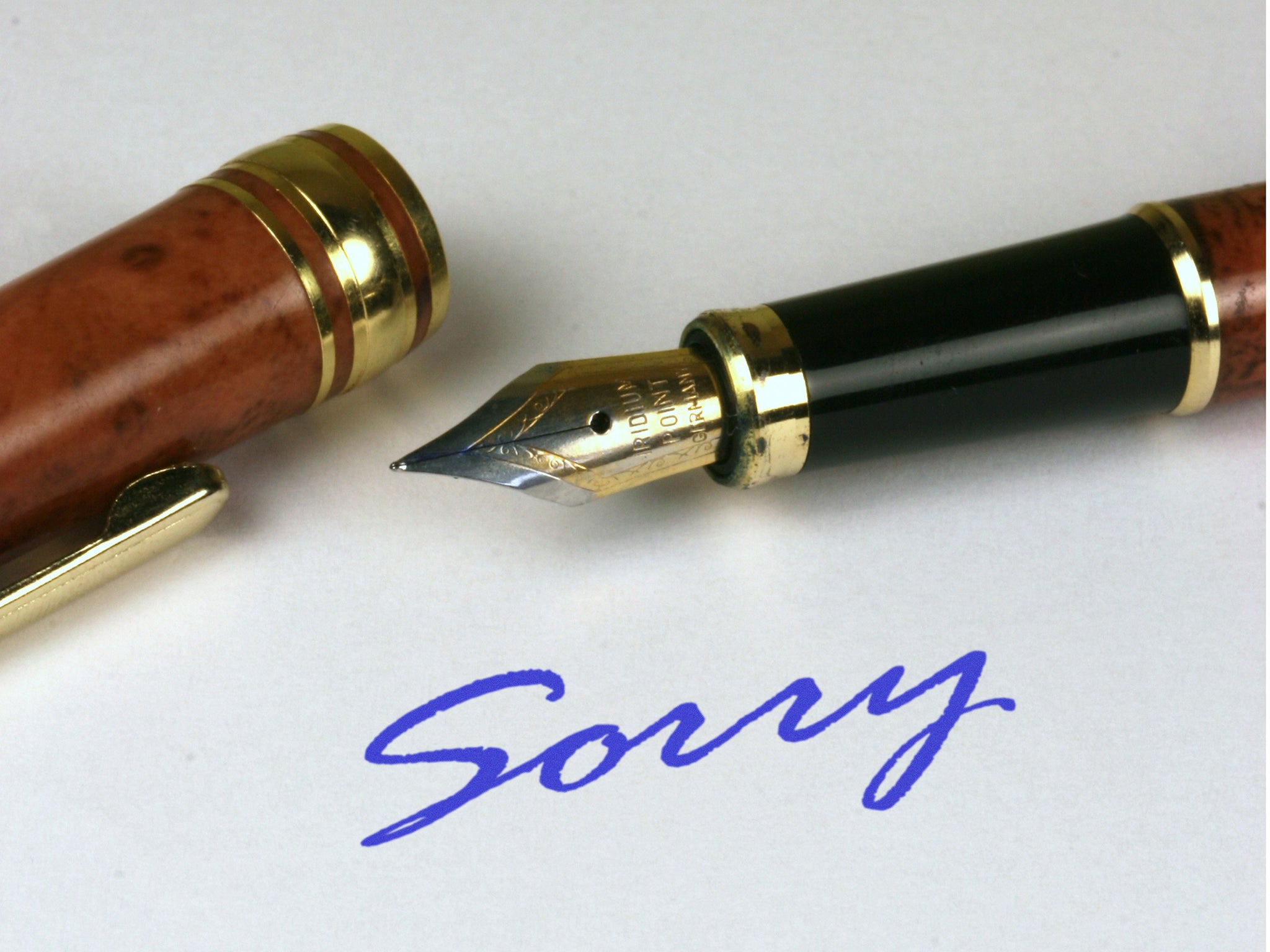Sorry, but I'm going to give up apologising - and here's why
The more we say sorry for things that we haven’t done, the less we say it for things we have

Your support helps us to tell the story
From reproductive rights to climate change to Big Tech, The Independent is on the ground when the story is developing. Whether it's investigating the financials of Elon Musk's pro-Trump PAC or producing our latest documentary, 'The A Word', which shines a light on the American women fighting for reproductive rights, we know how important it is to parse out the facts from the messaging.
At such a critical moment in US history, we need reporters on the ground. Your donation allows us to keep sending journalists to speak to both sides of the story.
The Independent is trusted by Americans across the entire political spectrum. And unlike many other quality news outlets, we choose not to lock Americans out of our reporting and analysis with paywalls. We believe quality journalism should be available to everyone, paid for by those who can afford it.
Your support makes all the difference.The average Briton says sorry eight times a day, according to research conducted in 2011 by a New York company. If the average Briton read the newspapers and listened to Radio 4 last week, they’d be forgiven for thinking that women and TV’s David Mitchell must be responsible for bumping up those averages considerably.
The week-long series Behaving Ourselves: Mitchell on Manners offered some fascinating insights, many into the presenter’s own social phobias when it comes to dress codes, forks, and hugging. Poor Mr Mitchell worries a lot about manners. This is the man who once wrote: “In my ideal world, whenever two people met they would both say sorry. Just to clear the air.”
Mr Mitchell would be thrown into a tailspin by a new app, aimed at women in the workplace, called “Just Not Sorry”. It works on emails much like a spellcheck, by highlighting what it calls “qualifying” and “diminishing” language. Naturally it makes no demands on its female users, but it does gently suggest that they avoid terms such as “sorry”, “just”, “actually”, “I think”, “I’m no expert” and “does that make sense?” if they want to be seen as serious professionals.
I am something of an expert, having conducted a similar experiment with my email language. I do use “sorry” liberally when I notice I’ve caused damage or am in the wrong, but I no longer apologise for myself, my opinions, or other people’s mistakes. Apologising, like chocolate, is a hard habit to shake; but let’s be honest, I’m not really sorry that a cold caller rang while I was out and I don’t need to apologise if someone puts me on a database of contacts for press releases about new-year diets, to take two recent examples.
With practice, the I’m-not-really-sorry apology becomes easier to eliminate. For instance, a sentence that begins, “I’m sorry but…” can usually be struck out, the “but” working as it does in the statements “I’m not being rude but…” or “I’m not a racist but …”. When “sorry” is used, it is more meaningful for being meant.
In 1978, the linguists Penelope Brown and Stephen Levinson wrote about the concepts of “positive” and “negative” politeness. The former uses optimistic and friendly language to identify with a listener, while the latter hedges, apologises, and formulates bizarre questions such as “I don’t suppose you could possibly …?” Since then we have invented social media, mobile phones and an increasingly litigious society. The more we say sorry for things we haven’t done, the less we seem to say it for things we have.
The app should make us stop and think – whether we are British, or women, or in the workplace – about when a thing is really worth apologising for. I’m not “sorry” for that opinion. You know that “I think” it because I have taken the trouble to write it down. And it does “make sense”. Actually.
Join our commenting forum
Join thought-provoking conversations, follow other Independent readers and see their replies
Comments